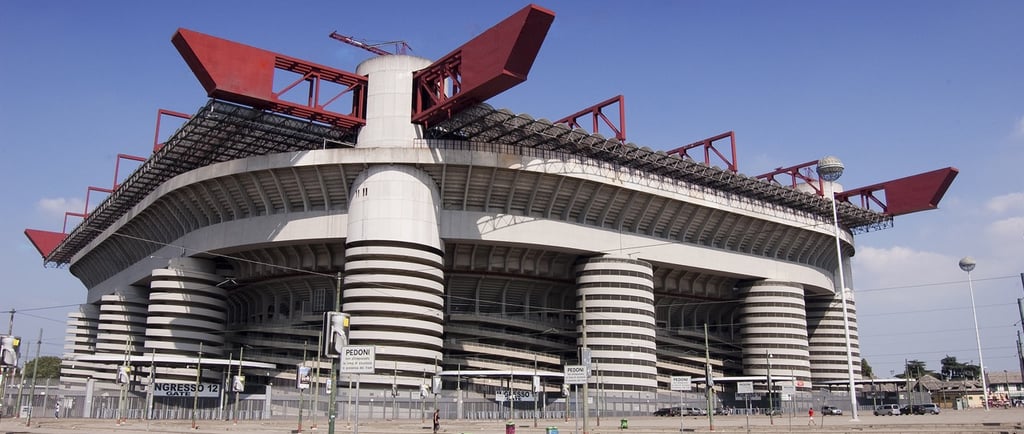LETIZIA: "IL BLUFF DI SAN SIRO DA MOLLARE IL PRIMA POSSIBILE"
NEWS


13 marzo 2025
Francesco Letizia, reporter di SportItalia e secondo alcuni giornalista appartenente alla corrente della cosiddetta "quota RedBird", questa mattina è tornato a parlare di San Siro.
Di seguito l'editoriale in versione integrale, presente anche sul sito SportItalia.it:
"Il settore immobiliare a Milano città è sicuramente il più caldo per fare business: basterebbe questa semplicissima osservazione a comprendere perché Milan e Inter hanno deciso di imbarcarsi nell’impresa impossibile chiamata “Nuovo San Siro”. Astenersi dal fornire altre motivazioni pretestuose e ipocrite: non c’è nessun tipo di riflessione “affettiva”, il principio è quello di provare a capire se si può o meno concretamente realizzare la speculazione dei sogni di ogni fondo di investimento. Al sindaco Sala, che ha un problema enorme sullo stomaco, non è parso vero di trovare una possibile scialuppa di salvataggio. E allora via all’offerta per l’acquisto e all’illusione di arrivare a un nuovo stadio per Milano entro il 2030: pazienza se al momento non c’è ancora un progetto né nulla. E già questo dovrebbe far pensare.
Perché dopo le rose (in realtà niente più che qualche bocciolo), arrivano le spine: intanto i costi dei lavori di bonifica, che, seconda la “Legge Stadi”, spettano tutti al Comune. Un ostacolo già sufficiente a bloccare tutto, ma semplicemente il primo di un percorso degno della finale olimpica dei 110 ostacoli. Anzi, forse meglio non parlare di Olimpiadi: perchè con la brillante idea della cerimonia di apertura a San Siro (6 febbraio 2026), ben presto ci potrebbe essere ulteriore carne a cuocere, non in prospettiva “trasloco” (anche perché per il presunto nuovo stadio, non si muoverebbe ancora nulla), ma per la semplice vita quotidiana dei club, che dovranno capire quando e per quanto lasciare lo stadio e dove traslocare (e far traslocare i loro abbonati, cosa ancora più grave) nel frattempo. Ne riparleremo, a tempo debito.
Tornando a San Siro, ben presto inizieranno manifestazioni varie dei comitati di quartiere e delle associazioni ambientaliste, c’è da giurarci. E arriveranno anche i probabili – pressochè scontati – ricorsi al TAR, che rallenteranno, se non bloccheranno, l’iter. Tutto questo, ammesso che in comune, Sala riesca a trovare una maggioranza utile: i vari Monguzzi e compagnia stanno già preparando battaglia.
In questo scenario apocalittico, aggiungiamo il problema dei tempi: bisogna fare tutto entro settembre, per evitare il vincolo della Soprintendenza, che altrimenti renderebbe non demolibile la stragrande parte dello stadio, cioè fine dei giochi.
Che il “Nuovo San Siro” si faccia insomma, al momento sembra mera utopia. E la cosa agghiacciante è che questa considerazione arrivi da una serie di motivazioni che nulla hanno a che fare con quella che dovrebbe essere la principale, anzi l’unica: che il Milan dovrebbe assolutamente, a ogni costo, ambire a uno stadio tutto suo, senza terzi incomodi. Come doveva essere lo stadio di San Donato, dove sono stati spesi soldi, fatica e “sentimenti”. E come dovrà tornare assolutamente a esserlo ben presto, non appena il bluff di San Siro sarà smascherato. Se Red Bird ha una chance di fare qualcosa di veramente importante per la storia del Milan e per i suoi tifosi, quel qualcosa si chiama San Donato: certamente difficile e costosa, ma un’opera finalmente all’altezza della storia, del blasone e del popolo dell’AC Milan. Un messaggio da recapitare ben chiaro a Gerry Cardinale da parte di tutti. E anzichè sprecare tempo a cantare “Cardinale, devi vendere”, forse sarebbe meglio, per il futuro del Milan, cantare “Cardinale, devi costruirci uno stadio tutto nostro, senza l’Inter”.
EN VERSION
Francesco Letizia, reporter for SportItalia and, according to some, part of the so-called "RedBird faction," spoke again about San Siro this morning.
Below is the full editorial, also available on the SportItalia.it website:
"The real estate sector in the city of Milan is undoubtedly the hottest for business: this simple observation alone is enough to understand why Milan and Inter decided to embark on the impossible venture called 'New San Siro.' Let's refrain from providing other pretextual and hypocritical motivations: there is no 'sentimental' reasoning involved here—the main principle is to determine whether the dream speculation of every investment fund can realistically be realized. For Mayor Sala, who has a massive burden on his shoulders, the possibility of finding a lifeboat seemed like a godsend. And so, the offer to purchase was made, along with the illusion of having a new stadium for Milan by 2030—never mind that, as of now, there is neither a concrete project nor anything else. And that alone should be cause for concern.
Because after the roses (which, in reality, are nothing more than a few buds), the thorns arrive: first of all, the costs of the remediation work, which, according to the 'Stadium Law,' must be entirely covered by the Municipality. This alone is enough to halt the entire process, but it is simply the first hurdle in a race worthy of the Olympic 110m hurdles final. In fact, maybe we should avoid mentioning the Olympics altogether—because with the brilliant idea of hosting the opening ceremony at San Siro (February 6, 2026), soon enough, there could be even more complications. Not in terms of a 'relocation' (also because nothing would be moving yet for the supposed new stadium), but for the simple day-to-day operations of the clubs, which will have to figure out when and for how long they need to vacate the stadium and where to relocate in the meantime (as well as where to relocate their season ticket holders, which is an even more serious issue). We will revisit this matter in due time.
Returning to San Siro, various neighborhood committees and environmental associations will soon start protesting—that's almost guaranteed. And there will also likely be—virtually inevitable—appeals to the Administrative Court (TAR), which will slow down or even completely block the process. All of this, assuming that Mayor Sala can even gather a viable majority in the City Council: figures like Monguzzi and his allies are already preparing for battle.
In this apocalyptic scenario, let's add the issue of timing: everything must be completed by September to avoid the constraints of the Cultural Heritage Office, which would otherwise make most of the stadium non-demolishable—essentially, game over.
That the 'New San Siro' will be built, at this point, seems like mere utopia. And the chilling part is that this conclusion stems from a series of reasons that have nothing to do with the one that should be the main, indeed the only, consideration: that Milan should absolutely, at all costs, aspire to have a stadium of its own, without any third-party interference. Just like the San Donato stadium was supposed to be—a project that cost money, effort, and emotional investment. And just like it must inevitably become again as soon as the San Siro bluff is exposed. If RedBird has a chance to do something truly significant for Milan’s history and its fans, that something is called San Donato: certainly difficult and expensive, but finally a project worthy of AC Milan’s history, prestige, and supporters. A message that should be made loud and clear to Gerry Cardinale by everyone. And instead of wasting time chanting 'Cardinale, you must sell,' perhaps it would be better, for Milan's future, to chant: 'Cardinale, you must build us our own stadium, without Inter.'"
